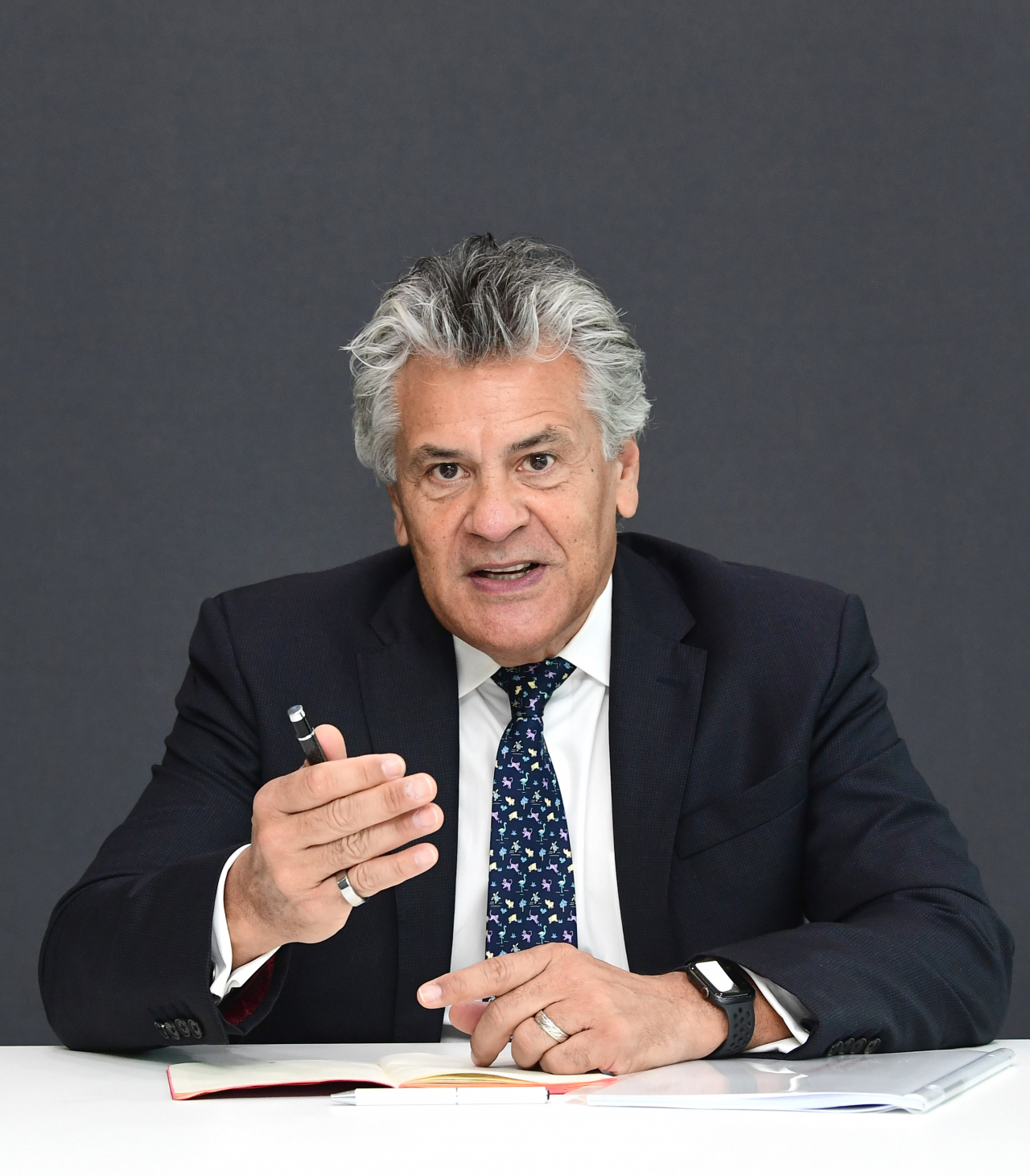[Herald Interview] ‘One arm gets influenza, other arm gets COVID’
Top Moderna official confident in developing pan-respiratory vaccine with mRNA technology
By Kan Hyeong-wooPublished : Nov. 3, 2022 - 17:05

The novel coronavirus is likely to evolve into a flu-like respiratory virus by the end of 2023, or in 2024, once the COVID-19 pandemic reaches its endemic phase, eventually requiring people to get vaccinated year after year, a senior leader at Moderna said.
“During the endemic period, the (COVID-19) vaccine will become available just like the influenza vaccine. You will be able to go online to a health center, do your pre-booking and pay for the vaccine exactly as you would for a flu vaccine,” Patrick Bergstedt, senior vice president of commercial vaccines at Moderna, said in an interview Oct. 27 in Seoul.
“When we look at the data and the evolution of the virus, we believe that this is going to evolve into more of a flu-like respiratory virus. And similar to updating your flu vaccine, you update your COVID vaccine. One arm gets influenza. The other arm gets COVID,” he added.
The novel coronavirus, which was first reported as the Wuhan virus, has constantly changed into a number of variants such as beta, delta and omicron to continue its contagious nature.
Bergstedt pointed out that Moderna is in the process of developing a combination vaccine that can protect people against both the influenza virus and COVID-19.
When asked about the possibility of developing a universal vaccine against pan-respiratory viruses, Bergstedt turned to the example of Moderna’s vaccine research in cytomegalovirus, or CMV.
“The vaccine we are developing contains six mRNAs in one vaccine. So we’ve already proven that we can put different mRNAs together in one vaccine. That gives us a lot of confidence about a ‘pan-respiratory vaccine,’” he said.
Highlighting the importance of making vaccine administration more convenient for people in order to have more people protected, Bergstedt said he believes the commercialization of vaccine patches using microneedles is five years away.
“From a healthy living, wellness perspective, people watch their diet. They watch what they drink. They exercise. They are fitness conscious. Why can't vaccines also become part of that?” said Bergstedt.
The Moderna official also welcomed the Korean government’s initiative -- co-hosting the first World Bio Summit with the World Health Organization, for instance -- in trying to become a leader in the global biotechnology industry.
“You look at the automotive industry and the electronics sector. Whenever Korea has focused on an industrial sector, it’s led to transformation, scale and huge impact beyond the borders of Korea,” he said.
As for the reason Moderna decided to set up a subsidiary in Korea, Bergstedt recalled the moment of the call between the country’s former president and CEO of Moderna in 2020. Being part of that conversation he said led to an agreement of research and development cooperation, which gave them a lot of confidence to come here and establish Moderna Korea.
“We really see long-term prospects here. We want to be a part of the discussion and solution. We are very serious about our presence here,” said Bergstedt.



![[Herald Interview] 'Amid aging population, Korea to invite more young professionals from overseas'](http://res.heraldm.com/phpwas/restmb_idxmake.php?idx=644&simg=/content/image/2024/04/24/20240424050844_0.jpg&u=20240424200058)













![[KH Explains] Korean shipbuilding stocks rally: Real growth or bubble?](http://res.heraldm.com/phpwas/restmb_idxmake.php?idx=652&simg=/content/image/2024/04/25/20240425050656_0.jpg&u=)

